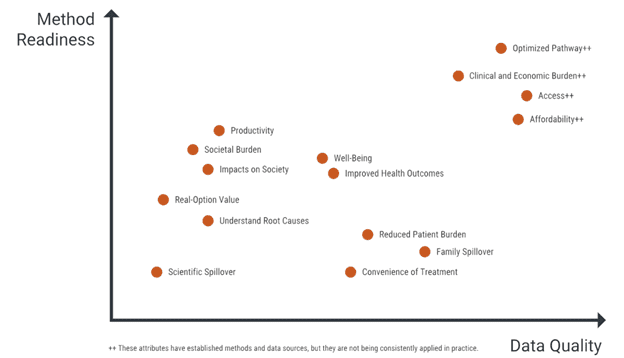How feasible is it to include broader value elements into value assessment?

That is one of the key questions from the IVI”s recent Value Blueprint paper titled “Prioritized Attributes to Better Define and Measure Innovation in Health Technology Assessment“. The expert roundtable convened by IVI examines not only whether there is a consensus about how to implement the value element (“method readiness”) but also if their is robust data to estimate this value element in practice (“data quality”). The IVI expert panel found the following:
Access, affordability, optimized treatment pathway, and clinical and economic burden were categorized as attributes with good data and methods available, but the use of quality data and validated methods was inconsistent across different stakeholders and diseases.
The well-being of patients and improved health outcomes were attributes judged to have some emerging data sources and methods. Family spillover5 , reduced patient burden, and convenience of treatments were attributes judged to have some emerging data sources but lacking methods.
Family spillover can occur when a disease and its management impact not only the person diagnosed with the disease condition, but also family members who may or may not directly provide care. Impacts on broader society , real-option value , productivity, understanding the root causes of a disease, and societal burden were attributes that were judged as having established methods but requiring additional data collection efforts in applying such methods.
Lastly, scientific spillover8 was considered an attribute that lacked both established data and methods.
You can read the full value blueprint here.

